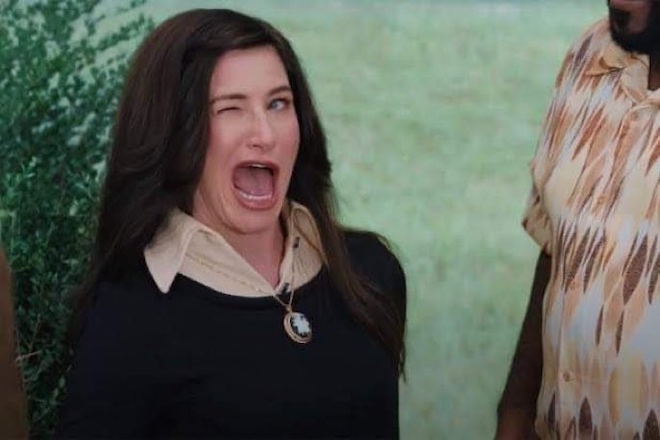Cognitive impairment and associated neurobehavioral dysfunction in post-COVID syndrome
Laura Marie Schmidt, Carsten Klingner, Insa Petersen, Annika Volkmer, Minne Schreiber, Alexander Schmidt, Philipp Reuken, Bianca Besteher, Christian Geis, Markus Ullsperger, Kathrin Finke, Eva Maria Martin, Sven Rupprecht, Stefan Brodoehl, Franziska Wagner
[Line breaks added]
Highlights
· Post-COVID patients show significantly slower reaction times on cognitive tasks.
· Slower reaction times in post-COVID patients are associated with brain hypoarousal.
· Increased reward influence over time: The effect of rewarding cues on task performance increases significantly over time for post-COVID patients.
· fMRI scans reveal delayed activation in the left frontal gyrus and increased task-positive network activity during cognitive tasks.
Abstract
There is a high prevalence of neuropsychiatric sequelae in post-COVID syndrome, most commonly chronic fatigue, the mechanisms of which remain poorly understood. As altered function of the reward system has been suggested as a causal factor, we aimed to distinguish whether reward processing or task-unspecific cognitive operations are impaired in post-COVID syndrome.
Our cohort study included 24 patients diagnosed with post-COVID syndrome and 24 demographically matched healthy controls. Questionnaire assessment of neuropsychiatric symptoms and socio-demographic variables, the Monetary Incentive Delay Task during an fMRI scan, and pupillary measurements were performed.
In addition to clinical neuropsychiatric symptoms, participants in the post-COVID group demonstrated significantly slower task performance compared to healthy controls, although the function of behavioral reward circuits appeared unimpaired. However, the influence of rewarding cues on post-COVID patients increased significantly over time during task performance, correlating with temporally delayed activation of the left frontal gyrus and increased activity in task-unspecific brain regions in post-COVID patients. Furthermore, slower reaction times on the task were associated with a lower pupil diameter and a higher pupillary unrest index.
This study proposes that post-COVID syndrome is a process that may not affect reward processing, but leads to neural hypoarousal and temporally altered brain activity in frontal and task-unspecific brain regions.
Link (Psychiatry Research) [Paywall]
Laura Marie Schmidt, Carsten Klingner, Insa Petersen, Annika Volkmer, Minne Schreiber, Alexander Schmidt, Philipp Reuken, Bianca Besteher, Christian Geis, Markus Ullsperger, Kathrin Finke, Eva Maria Martin, Sven Rupprecht, Stefan Brodoehl, Franziska Wagner
[Line breaks added]
Highlights
· Post-COVID patients show significantly slower reaction times on cognitive tasks.
· Slower reaction times in post-COVID patients are associated with brain hypoarousal.
· Increased reward influence over time: The effect of rewarding cues on task performance increases significantly over time for post-COVID patients.
· fMRI scans reveal delayed activation in the left frontal gyrus and increased task-positive network activity during cognitive tasks.
Abstract
There is a high prevalence of neuropsychiatric sequelae in post-COVID syndrome, most commonly chronic fatigue, the mechanisms of which remain poorly understood. As altered function of the reward system has been suggested as a causal factor, we aimed to distinguish whether reward processing or task-unspecific cognitive operations are impaired in post-COVID syndrome.
Our cohort study included 24 patients diagnosed with post-COVID syndrome and 24 demographically matched healthy controls. Questionnaire assessment of neuropsychiatric symptoms and socio-demographic variables, the Monetary Incentive Delay Task during an fMRI scan, and pupillary measurements were performed.
In addition to clinical neuropsychiatric symptoms, participants in the post-COVID group demonstrated significantly slower task performance compared to healthy controls, although the function of behavioral reward circuits appeared unimpaired. However, the influence of rewarding cues on post-COVID patients increased significantly over time during task performance, correlating with temporally delayed activation of the left frontal gyrus and increased activity in task-unspecific brain regions in post-COVID patients. Furthermore, slower reaction times on the task were associated with a lower pupil diameter and a higher pupillary unrest index.
This study proposes that post-COVID syndrome is a process that may not affect reward processing, but leads to neural hypoarousal and temporally altered brain activity in frontal and task-unspecific brain regions.
Link (Psychiatry Research) [Paywall]

